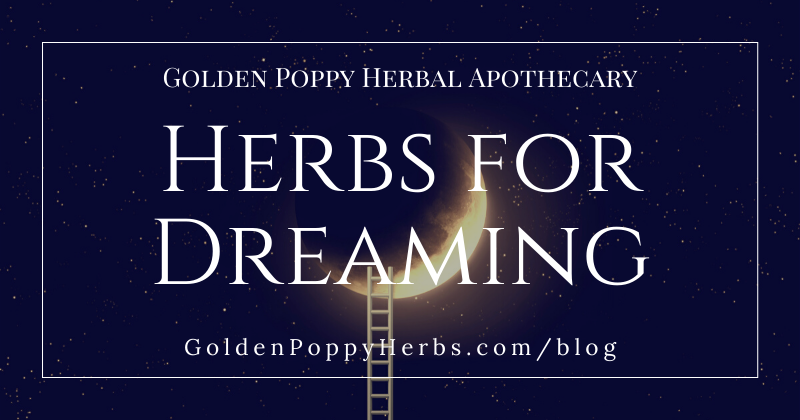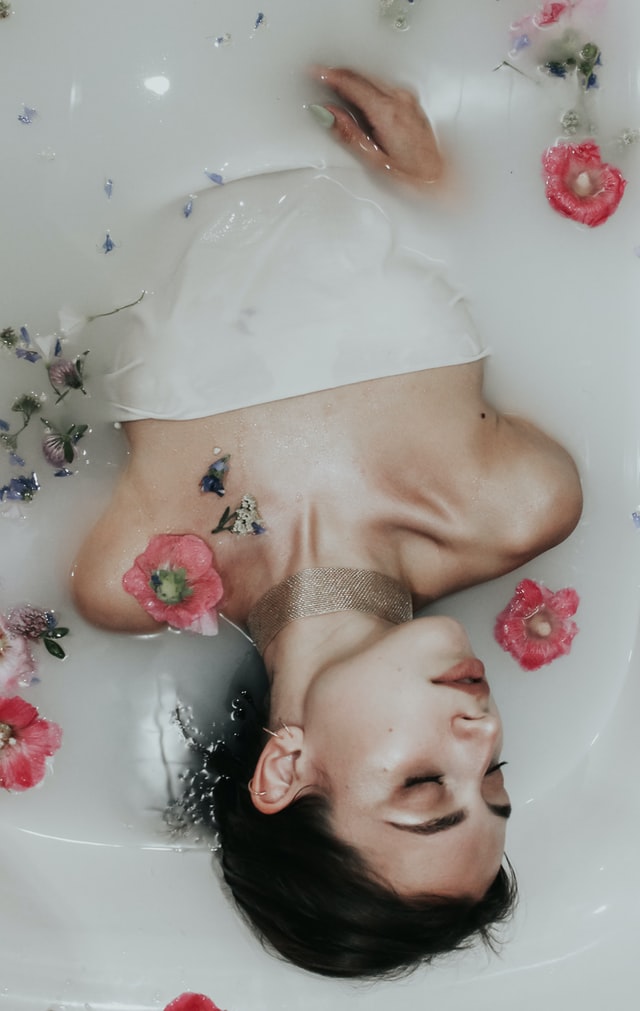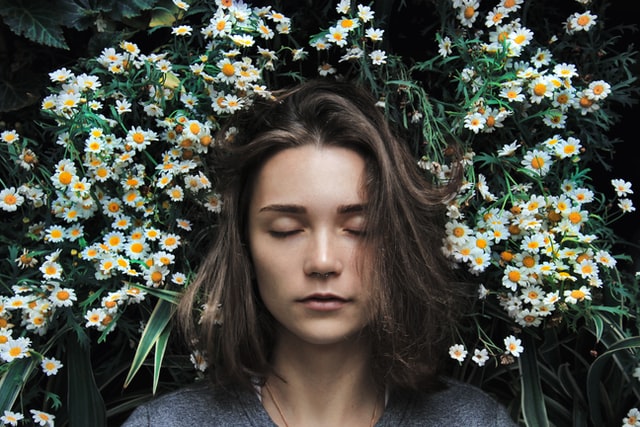 There is almost a sense of mysticism around dreaming. They come to us in the deepest part of the night, when we are fast asleep. It is this sense of almost vulnerability, and subsequently, surrender, that feels mystical. We do not have a lot of control over the sometimes magnificently vivid theater production our subconscious conducts behind our closed eyes. Sometimes the dreams are simple, while other times they are so specific and tangible we cannot help but wonder upon awakening whether it was not our own subconscious at all that produced it - but perhaps even a message from an energy we cannot yet explain. Dreams have been one of those phenomena that we have been long fascinated with as humans. Some dreams are even steeped in legends or myths, made famous by the fact that the dream predicted an important historical event. Perhaps the dream even guided the sleeper to develop an invention that changed humanity forever. Matter of factly, an incredible mind that credits a lot of his knowledge and discoveries to his dreams is Albert Einstein. As a person who often slept above-average hours compared to most, including 10 hours of sleep each night in addition to naps during the day, he spent a lot of time in a dreamstate. However, sleep is crucial to our health, and particularly to our brain function - and it appears that being in this state allowed for many of his great ideas. The most profound vision that appeared to him in his dreams is probably that which Einstein is most well known for: Einstein’s Theory of Special Relativity. The dream, while bizarre, (Einstein was dreaming of cows being electrocuted), led to our deeper understanding of the speed of light. Dreams also play a prominent role in folklore for many ancient cultures around the world, and for some cultures, including that of the ancient Greeks, were represented in their religious figures. The “minor god” Morpheus was one such embodiment and personification of dreams. While the ancient Greeks believed in several gods and goddesses that had the ability to bring visions and images to human minds in their sleep, Morpheus is probably the most well known for this activity. Matter of factly, his name is what contributed to the medical term for morphine.
There is almost a sense of mysticism around dreaming. They come to us in the deepest part of the night, when we are fast asleep. It is this sense of almost vulnerability, and subsequently, surrender, that feels mystical. We do not have a lot of control over the sometimes magnificently vivid theater production our subconscious conducts behind our closed eyes. Sometimes the dreams are simple, while other times they are so specific and tangible we cannot help but wonder upon awakening whether it was not our own subconscious at all that produced it - but perhaps even a message from an energy we cannot yet explain. Dreams have been one of those phenomena that we have been long fascinated with as humans. Some dreams are even steeped in legends or myths, made famous by the fact that the dream predicted an important historical event. Perhaps the dream even guided the sleeper to develop an invention that changed humanity forever. Matter of factly, an incredible mind that credits a lot of his knowledge and discoveries to his dreams is Albert Einstein. As a person who often slept above-average hours compared to most, including 10 hours of sleep each night in addition to naps during the day, he spent a lot of time in a dreamstate. However, sleep is crucial to our health, and particularly to our brain function - and it appears that being in this state allowed for many of his great ideas. The most profound vision that appeared to him in his dreams is probably that which Einstein is most well known for: Einstein’s Theory of Special Relativity. The dream, while bizarre, (Einstein was dreaming of cows being electrocuted), led to our deeper understanding of the speed of light. Dreams also play a prominent role in folklore for many ancient cultures around the world, and for some cultures, including that of the ancient Greeks, were represented in their religious figures. The “minor god” Morpheus was one such embodiment and personification of dreams. While the ancient Greeks believed in several gods and goddesses that had the ability to bring visions and images to human minds in their sleep, Morpheus is probably the most well known for this activity. Matter of factly, his name is what contributed to the medical term for morphine.
 Photo by Andalucía Andaluía on Unsplash[/caption]
Photo by Andalucía Andaluía on Unsplash[/caption]
The Health of Dreams
We all understand the importance of sleep. This information is given to us as a regular reminder, a symptom of a generally fast-moving society that struggles to get enough sleep due to demands for productivity or heightened distractions (i.e. screens at night). However, were you also aware that dreams themselves have incredible benefits for our health? According to the Sleep Foundation, dreaming itself is an indication of healthy sleep. This is due to the fact that good quality and restful sleep has a link to increased brain function, as well as improved emotional health. Evidence even suggests that benefits of dreaming include improved memory, and better able to process emotions. The Sleep Foundation also points out that people who dream regularly are said to have sharper thinking skills, tend to have improved moods, and have higher levels of creativity (especially if dreams are incorporated into day to day imaginative endeavors).Dreaming to Enhance Your Relationship with Plants
When we are asleep and engaged in a dreamstate, this is also an incredible moment, for it is a time when the constraints of the day to day world do not have a grip on our mind. Instead, quite the opposite occurs - all of that falls away, allowing for our subconscious mind to open and expand to other possibilities. Asia Suler, herbalist and founder of One Willow Apothecaries, describes the phenomenon of dreaming so beautifully in an interview with Vanessa Rodriguez on the Feed Your Wild Podcast:“To me, dreaming is a remembrance of where our consciousness goes when our body goes to sleep. It’s a remembrance of the fact our consciousness is partially stepping out of our body and exploring other arenas, returning to our wider home, our wider self, our wider guidance, and bringing back knowledge and insight from that place. Dreams are the packaged metaphors that come back to us - the packaged stories that help us understand where we are at right now, and where it is our spirit is asking us to go.”Asia also describes dreaming as, “the place in which we can communicate with other forms of consciousness” - including plants. In a previous post on this blog, Connecting Deeper: Plant Spirits & Communication, we explored the concept that plants themselves are living beings that hold within them a spirit, and subsequently consciousness. Plants are beautiful allies that if we take the time to listen, we can truly learn so much more. Dreamstates are another place in which we can become fluent in languages we may not otherwise understand, such as those that plants speak. If you are open and willing to listen, plant beings may very well visit you in your dreams to continue to share lessons or ideas with you.
Has a plant ally appeared to you in your slumber? What did they say?
 Photo by Bruce Christianson on Unsplash[/caption]
Photo by Bruce Christianson on Unsplash[/caption]
Holistic Practices to Encourage Dreaming
Allowing our minds to enter a dreamstate frequently, as aforementioned, has incredible benefits. However, we recognize that some may have difficulty dreaming, or perhaps do not frequently remember their dreams. That is okay - it is something that can be encouraged and improved upon! We invite you to try out some of the following practices to encourage increased dreaming: Turn Off the Screens: This may seem like a given, but avoiding stimulation of our senses before bed is incredibly important for a restful sleep. Our bodies have long been connected to the rhythms of natural light, hardwired to awaken when the sun is rising, and to sleep as the sun goes down. Screens have a way of disrupting these rhythms, and continue to engage our brains when they should be powering down for rest. Additionally, use of screens can also contribute to nightmares, which can be dreams that disrupt our sleep. Trick Your Mind: This is a practice in which you can lean into setting an intention in order to better increase, or remember your dreams. This can include a routine, such as spritzing an aromatherapy spray on your pillow, and repeating in your mind that when you use this spray, that it will encourage dreams. Additionally, Asia Suler also recommends using a “weird object” to help set an intention to remember dreams. This should be an object that is not typically something you would find on your nightstand - such as a shoe or maybe even a frying pan. The idea is that before you fall asleep, this object is placed to serve as a reminder to remember your dream; when you awaken to the bizarre, out of place object on your nightstand it sparks this connection. By seeing the visual object connected to your intention to remember your dreams, it will help encourage your brain to allow the dreamstate images to resurface more easily upon waking.

Photo by Ann Danilina on Unsplash[/caption] Develop a Relaxation Routine: Similar to the aforementioned tip, intention can be integral to helping encourage dreaming. If we set up a routine prior to bed in which we encourage a sense of relaxation, this can help encourage the deeper, fuller sleep that promotes dreams. Set an intention to allow your body to rest, and your routine can really be whatever serves you best. For some it may be doing a restorative, grounding yoga practice. For others, it may be settling down with a book and a warm cup of tea. Perhaps you set some calming essential oils to diffuse or light incense to burn while you meditate. Choose activities that encourage this sense of relaxation for you. Dream Journal: This one may feel a little cliche, but it has proven effective for those who engage in this practice to better recall their dreams. Upon waking, it is common for many of us to start forgetting the details of our dreams rather quickly, sometimes in a matter of very few minutes. A dream journal can be a great way to document the images of our subconscious as soon as we wake up, and with continued practice, it may actually improve and enhance the ability to remember dreams. Additionally, a journal is a great way to examine whether continued patterns, such as the reappearance of a particular plant ally.
Herbs to Invoke Dreaming
Communication with us in our dreams are not the only way we can connect with plants. Matter of factly, many herbal allies are actually known for their ability to help encourage restful sleep, and furthermore, dreaming itself.
 Photo by Ann Danilina on Unsplash[/caption] Skullcap: This beautiful herb is aptly named for the nervine effect it has on a racing mind. Literally described as a “cap” for our skulls, this herbal ally can help quiet and calm thoughts, allowing us to feel more grounded and present. For some, this herb can actually have sleep-inducing properties, causing drowsiness. Either way, this herb can help alleviate those unrelenting thoughts that prevent us from being able to enter restful sleep. Chamomile: This sweet herb is known for its ability to create a sense of calm in the body. Chamomile can be a great ally to help combat insomnia or other types of sleep inhibiting conditions, and encourages deep, restful sleep that paves the way for dreams to better occur. Sipping on a chamomile tea or diffusing chamomile essential oils prior to bedtime can help promote a nourished state of relaxation. Lavender: This incredible aromatic herb has long been connected with relaxation, sleep, alleviating anxiety, and encouraging an expanded subconscious awareness. This is an herb that can invoke more vivid dreaming, or allow our minds to explore connections with other forms of consciousness and energy around us. A great way to use this herb is by making a “dream pillow” in which a small pouch is filled with lavender and placed under a pillow, or by simply spraying lavender aromatherapy spray on your pillow prior to bedtime. Rosemary: Rosemary is an herb that can help improve cognitive function and alleviate barriers to recalling memories. This is an herbal ally that can help support and encourage our brain activity, alleviating the sense of “fog” that may occur upon awakening. Mugwort: This plant ally is an incredibly potent herb to invoke profound, visual, and even lucid dreaming. Mugwort has long been used for this purpose, even tracing back to more ancient times. This is due to the fact that Mugwort is believed to promote psychic ability, even thought to encourage prophetic dreamstates. In addition to being used in tinctures or teas, another effective way in which to use Mugwort is to use it as a loose incense in your bedroom prior to sleep. Give our Time for Bed tea a try as well to help get a good night's sleep! We thank you for sharing in this exploration of dreaming with us. We encourage you to try out some of these practices and herbs to increase more restful sleep and invoke a heightened subconscious mind. We hope that your dreams bring expanded awareness, or at the very least some entertainment. Sweet dreams!
Photo by Ann Danilina on Unsplash[/caption] Skullcap: This beautiful herb is aptly named for the nervine effect it has on a racing mind. Literally described as a “cap” for our skulls, this herbal ally can help quiet and calm thoughts, allowing us to feel more grounded and present. For some, this herb can actually have sleep-inducing properties, causing drowsiness. Either way, this herb can help alleviate those unrelenting thoughts that prevent us from being able to enter restful sleep. Chamomile: This sweet herb is known for its ability to create a sense of calm in the body. Chamomile can be a great ally to help combat insomnia or other types of sleep inhibiting conditions, and encourages deep, restful sleep that paves the way for dreams to better occur. Sipping on a chamomile tea or diffusing chamomile essential oils prior to bedtime can help promote a nourished state of relaxation. Lavender: This incredible aromatic herb has long been connected with relaxation, sleep, alleviating anxiety, and encouraging an expanded subconscious awareness. This is an herb that can invoke more vivid dreaming, or allow our minds to explore connections with other forms of consciousness and energy around us. A great way to use this herb is by making a “dream pillow” in which a small pouch is filled with lavender and placed under a pillow, or by simply spraying lavender aromatherapy spray on your pillow prior to bedtime. Rosemary: Rosemary is an herb that can help improve cognitive function and alleviate barriers to recalling memories. This is an herbal ally that can help support and encourage our brain activity, alleviating the sense of “fog” that may occur upon awakening. Mugwort: This plant ally is an incredibly potent herb to invoke profound, visual, and even lucid dreaming. Mugwort has long been used for this purpose, even tracing back to more ancient times. This is due to the fact that Mugwort is believed to promote psychic ability, even thought to encourage prophetic dreamstates. In addition to being used in tinctures or teas, another effective way in which to use Mugwort is to use it as a loose incense in your bedroom prior to sleep. Give our Time for Bed tea a try as well to help get a good night's sleep! We thank you for sharing in this exploration of dreaming with us. We encourage you to try out some of these practices and herbs to increase more restful sleep and invoke a heightened subconscious mind. We hope that your dreams bring expanded awareness, or at the very least some entertainment. Sweet dreams!
Sources:
- Gorvett, Zaria. “What You Can Learn from Einstein’s Quirky Habits.” BBC. 12 June 2017. Retrieved from: https://www.bbc.com/future/article/20170612-what-you-can-learn-from-einsteins-quirky-habits
- Greenburg, Mike, Phd. “Morpheus: The Personification of Dreams.” Mythology Source. 16 June 2020. Retrieved from: https://mythologysource.com/morpheus-greek-god/
- Pacheco, Danielle. “How Do Dreams Affect Sleep?” Sleep Foundation. 30 October 2020. Retrieved from: https://www.sleepfoundation.org/dreams/how-do-dreams-affect-sleep
- Rodriguez, Venessa, host. “Awakening the Healer Within: Intuitive Healing & Plant Medicine with Asia Suler.” Feed Your Wild. 18 March 2019. Retrieved from: http://www.wildlyrooted.com/fywpodcast/asiasuler
- Saba, Heather. “Herbal Dreamtime: 6 Herbs to Liven Your Dreamspace.” The Herbal Academy. 18 March 2019. Retrieved From: https://theherbalacademy.com/herbal-dreamtime/
- Sleep Advisor. “Sleeping Habits of Geniuses.” Sleep Advisor. 8 June 2020. Retrieved from: https://www.sleepadvisor.org/how-geniuses-sleep/



